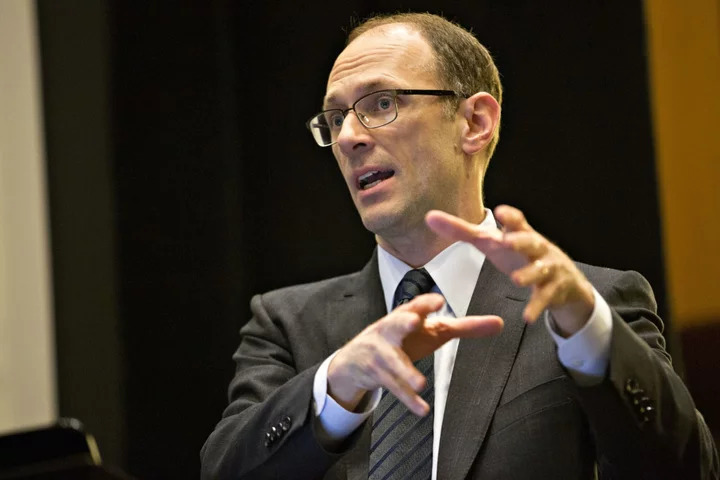Federal Reserve Bank of Chicago President Austan Goolsbee expressed optimism that there’s bipartisan support for a tentative deal to raise the US debt ceiling, adding that a failure to do so would be detrimental to the economy.
“We must raise the debt ceiling,” Goolsbee said Sunday in an interview on CBS’s Face the Nation. “If you did not do that, the consequences for the financial system and for the broader economy would be extremely negative.”
White House and Republican negotiators reached a tentative compromise late Saturday to raise the debt ceiling and avert a default that threatened to send tremors through the global economy. Lawmakers have until June 5 to pass legislation before the Treasury is expected to run out of headroom to keep paying its obligations on time, Treasury Secretary Janet Yellen said Friday.
That narrow window of time in which to raise the borrowing limit is a “little dangerous,” Goolsbee said, noting that even the anticipation of a default has impacted the economy and financial markets.
The deal — reached after weeks of bitter negotiations — includes a two-year appropriations agreement that keeps non-defense spending roughly flat with current levels, a person familiar with the deal said, speaking on condition of anonymity.
The Chicago Fed chief has expressed concern about the broader economic impact of recent banking-sector turmoil. The bank failures have amplified a pullback in lending that began last year, and some officials are concerned that, coupled with the Fed’s own aggressive tightening so far, the credit contraction could cool the economy more than officials had previously estimated.
The impasse over the debt ceiling couldn’t have come at a worse time, Goolsbee said, and a deal would bring relief amid the banking issues.
Goolsbee, a voter on the Federal Open Market Committee this year and one of its more dovish members, said he hasn’t yet made a decision on how he’ll vote at the Fed’s June 13-14 meeting.
Policymakers have increased interest rates at a fast clip in the past 14 months, including a quarter-point hike at their meeting earlier this month. Officials were split at that meeting over whether another increase in June would be necessary or not.
“The actions that the Fed takes take months or even years to work their way through the system,” Goolsbee said. “There’s no doubt inflation is too high, still, it has come down. We’re just trying to manage — can we get inflation down without starting a recession.”
While some officials see the need to take time to assess how the Fed’s actions so far have impacted the economy, others argue that sticky inflation means they likely need to push rates higher to contain price pressures. Some officials have indicated that even if they keep rates steady in June, they could resume rate increases later this year.
Data released Friday showed the personal consumption expenditures price index, the Fed’s preferred inflation gauge, rose a faster-than-expected 0.4% in April and was up 4.4% from a year ago — more than double the central bank’s 2% target.

